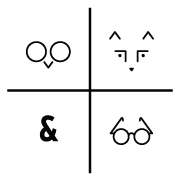The Power of 'What'
Have you ever been asked why something happened and not known where to begin? Or did it trigger you to respond defensively?
One core principle we teach to our clients and practice daily is the power of questions that start with 'what'.
Sakichi Toyoda (and now countless designers, management consultants, and gurus) taught us to ask the “Five Why's.” Simon Sinek reminds us to “Start with Why" - because people don’t buy what you do, they buy why you do it. 'Why' seems like a logical choice to gain a deeper understanding on the situation at hand and purpose of it all.
So, what about ‘what'? If all books and gurus point to the power of asking ‘why', why bother with ‘what’?
Although the difference in approach may seem subtle, the variation of results can be dramatic. Learning the difference between ‘why' and ‘what’ questions and when to use them is a core leadership skill.
Think about what it feels like to be asked these two questions:
Why did you and your team miss the deadline?
What do you think happened that led to you and your team missing the deadline?
Let's revisit vision and purpose, where vision is our understanding of the horizontal and purpose is our understanding of vertical. ‘What' questions help us get our bearings within a system and give us our sense of spatial awareness, our sense of place, and help us accurately see the raw data before making assumptions. ‘Why' questions help us understand the purpose of things more deeply and shed light on the underlying beliefs, mental models, and assumptions that are behind the data.
'What’ questions allow us to gain greater lateral context while we develop our understanding of the story. Think about it in terms of vision. To make the right decisions, you need to know what’s going on around you with as much context as possible. ‘What' questions allow you to build out your understanding of a story or challenge.*
'Why’ questions allow us to go deep. They are important, but jumping to ‘why' too quickly, or without the context that ‘what' questions give us, can lead to silos and rabbit holes. Once we know what, we can then ask why.
Here's an example of shifting from why to what:
Why did that happen?
vs.
What caused that to happen?
What factors contributed to that happening?
What did that person say and do right before that happened?
In essence, ‘what’ questions do help us understand why things happen, but they allow for a more detailed conversation about the facts before making assumptions. ‘What' questions lead to conversations about data - things that are mostly undeniable and objective. When you ask why (depending on the issue at hand) you are more likely to get a subjective, even defensive response.
The practice of challenging yourself to use 'what' questions also forces you to pause and think about the purpose of your question. What are you hoping to discover and learn? What kind of response would you like from the other person or the group? What tone are you trying to set in the room?
It's easy to ask why repeatedly, it's challenging to craft 'what' questions that build upon the dialogue and story. 'What' questions force us to be thoughtful. Thoughtfulness leads to greater understanding. Greater understanding of the challenge at hand leads to better designs and more durable solutions.
In his book, To Sell is Human, Dan Pink explains that the best designers are not problem solvers but rather problem finders. 'What' questions allow us to find the problem and leverage change before jumping too quickly to solve what is most obvious.
We're not advocating for 'why' to be abolished. Understanding why things happen, why we start businesses, and why things are important to us is critical. Sinek is right when he says that "people don't buy what you do they buy why you do it," we must have a deep understanding of purpose in order to create and communicate value. Toyoda's advice to practice getting to the bottom of things by continuing to question is sound, we must understand the underlying factors that contribute to what's visible.
We are advocating for a more thoughtful and contextual approach to understanding the purpose of things and the underlying factors of what's visible. Practicing 'what' questions helps us do that.
What questions will you ask today?
*Exceptions: What the hell is wrong with you? What's your deal, man? What gives?
